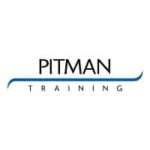Considering a Course in Safety Auditing?
Safety Auditing is a core safety management activity, providing a means of identifying potential problems within a business and its procedures before they have an impact on safety. A Safety Audit is a general term used to describe an activity where a facility gathers information about one or more aspects of the workplace to evaluate the risk levels for health or safety issues.
Safety Audits enable a business to protect employees and customers from harm and can be performed either as an Internal Audit, usually performed by an internal team to evaluate the current status and effectiveness of the health and safety management system, or as an External Audit which is usually conducted by third-party certifying bodies and insurance companies to evaluate and examine the effectiveness of a business’s health and safety management system.
What is a Safety Audit?
A Safety Audit is a structured process where information is collected relating to the efficiency, effectiveness, and reliability of a company’s total health and safety management system.
A Safety Audit evaluates safety programs and practices within an organization. A Safety Audit should measure and collect information about a safety program’s reliability and effectiveness, look at whether a safety program meets the company’s stated goals, and examine safety training and response efforts.
Why is a Safety Audit important?
Safety Audits are conducted to ensure that businesses comply with Health & Safety laws and regulations that ensure a safe workplace is provided for all employees. A Safety Audit identified different levels of risk in each work area of a business.
Safety Audits help to identify the risks and the levels of risks within the workplace by identifying strengths and weaknesses in safety procedures. A Safety Audit will assess whether a business’s safety procedures are legally compliant and will compare current documentation and practices against best practice and legal obligations.
A Safety Auditor will be able to make recommendations about improvements in the safety procedures and ensure that there are adequate resources available to manage Occupational Health & Safety for the business and that those resources are being used effectively.
What Will I Learn?
- You will learn about the sources of evidence that auditors look for when doing their evaluations, such as documents and records, interviews, and direct observations.
- You will learn to understand financial documents and budget information and how to plan and prepare for the Audit process and produce an Audit plan.
- You will learn about auditing procedures such as analytical review, inquiry, observation, inspection, and recalculation.
- You will learn how to collect and record Audit data and evaluate the findings.
- You will learn how to compile and process findings and make suitable recommendations.
- You will learn about developing and implementing health and safety policies and outlining safe operational procedures.
- You will learn about Occupation Health & Safety training and how to stay up to date with new developments and legislation in health and safety.
Career Opportunities
After completing your Safety Auditor course, you can expect to work as Occupational Health & Safety Auditor, an Occupational Health & Safety Officer, Health and Safety Practitioner, Industrial Hygienist, Environmental Protection Officer, Compliance Officer, or Chief Safety Officer.
If you’re serious about doing a course in Safety Auditing and would like to learn more about Health & Safety, check out courses in the Nightcourses.co.uk national course finder.



